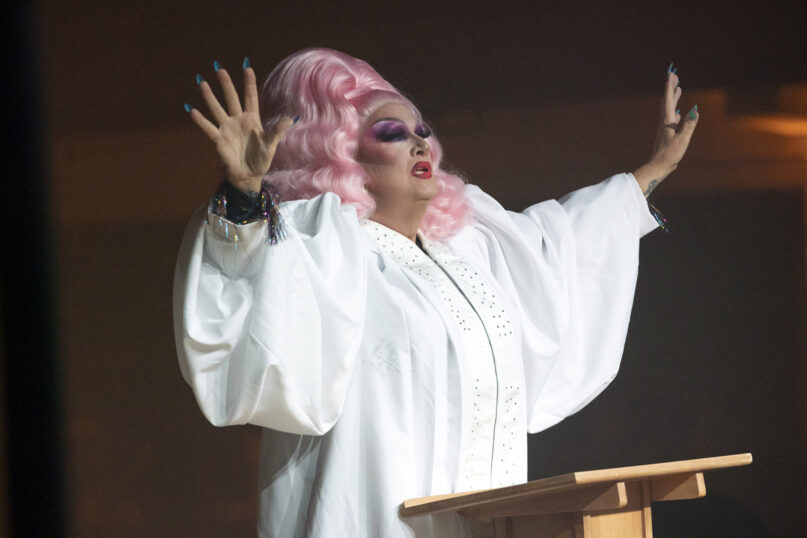A while ago I read a piece on a United Methodist pastor who ended up on a HBO feature on drag queens. This Indiana minister participated in full drag queen dress and then went back home to his parish. “When the episode is over, I go right back to my home, my neighborhood, my church, my experiences as Craig Duke, where my pronouns, my race, my sexuality and the way I express my faith is completely accepted,” he said. “I’m hoping it’s a bridge — for my daughter, for the church I serve, for the denomination I love and for me — and I’m hoping my voice will become stronger,” he said.
Although I do not know the man, I am sure he found the experience cathartic, therapeutic, and exhilarating all at the same time. But at what cost? His own denomination is divorcing over the very things that such a show puts front and center. Perhaps what was most telling was the way he began the HBO show with "Welcome to Church." That is the problem. Dealing with his desires and seeking the approval of his church, his friends, and his God is what he calls church. While it might sound nice, it does little to acknowledge what the Gospel is by Jesus' own words or to address the world with the message of the cross. I am sure it is therapeutic but is it the Gospel? That is what's at stake -- not approval or disapproval of the man or his chosen lifestyle but what kerygma is being proclaimed in Christ's name to the world and to those in his charge? The fact that folks feel better about themselves may or may not be good -- depending upon what it is that they feel -- but that is not the focus of the Gospel.
Those who advocate for the greater GLBTQ+++ agenda are hijacking the Gospel and the church and using them to deal with personal problems and needs. It is not a theocentric message but an anthropocentric focus. This may have been a problem in the past but now it has become the very content of the faith and the focus of the life of the congregation for those churches where this social justice theme has replaced Christ and Him crucified. Therapeutic deism is not only the danger for the church but it has become the operating program for the clergy of too many denominations. Meanwhile, without the real Gospel, people are left bruised, broken, and bleeding without the true medicine of the Gospel. How long will churches last with pastors whose primary concern is coming to terms with their chosen identity and getting the people in the pews to celebrate them and join them in this endeavor?

2 comments:
According to a December 7, 2021, news article, "Pastor loses his job after performing in drag on HBO’s 'We're Here'," this transvestite looney tune has requested a new assignment from Bishop Julius C. Trimble of the Indiana Conference of the United Methodist Church.
Pastors are leaders of sheep. Sheep who are not in quest of their identity, but in need of salvation. If the pastor does not provide his sheep with food, he is no pastor. If the sheep are in search of what pleases their tastes rather than the food provided by Christ and His ministers, they are no sheep.
Post a Comment